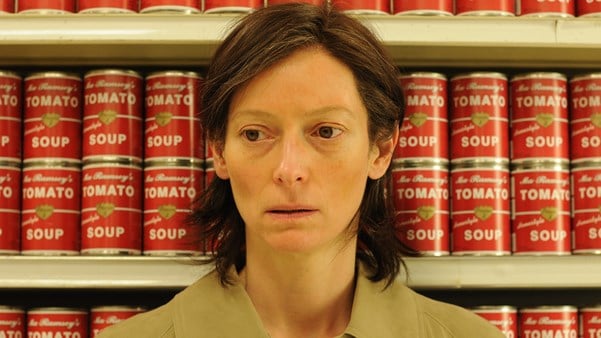Rōgan Graham explores the assorted works of the Dublin screenwriter and playwright, who specialises in insightful, dialogue-light character studies that highlight the dark truths of his nation’s history.

Prolific Irish playwright Enda Walsh is the scribe behind Tim Mielants’ latest drama Small Things Like These, starring Cillian Murphy in his first post-Oppenheimer, post-Academy Award role. Adapting Irish writer Claire Keegan’s novella, Walsh aids Mielants in bringing to the screen the story of Murphy’s coal merchant Bill Furlong, who’s grappling with the tyranny and injustice of the local convent, where young unwed mothers (or ‘fallen women’) are held and abused.
The Magdalene Laundries operated in Ireland under Roman Catholic orders from the 1820s until as recently as 1996. At times disguised in the community as places of refuge for women, in reality they operated as workhouses. Walsh’s screenplay is set in County Wexford in 1985. Bill Furlong is on one of his regular coal-delivery rounds shortly before Christmas when he sees a teenage girl being forcibly delivered to the convent by her parents. This encounter triggers uncomfortable memories of his own childhood. Furlong’s conscience takes over and that’s where Walsh’s incisive script shines.
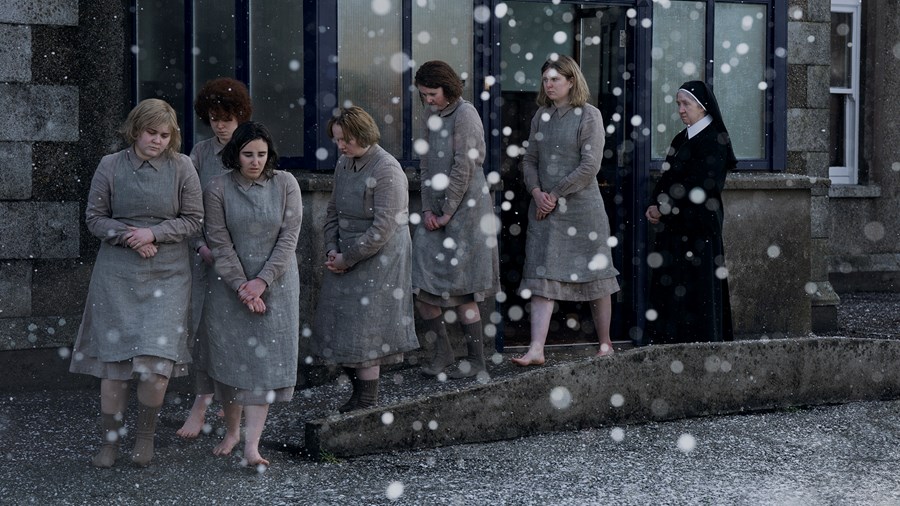
Small Things Like These (2024)
Small Things Like These is Walsh’s most recent collaboration with Murphy, but their relationship dates back to the actor’s very first professional role: the original 1996 stage production of Disco Pigs. Walsh won both the George Devine and Stewart Parker writing awards for the play, and adapted it himself for Kristen Sheridan’s eponymous 2001 film. The movie is an offbeat, coming-of-age romantic drama dealing with the severe and violent co-dependence between Murphy’s ‘Pig’ and Elaine Cassidy’s ‘Runt’. Walsh’s theatre success continued with consecutive Edinburgh Fringe First awards for The Walworth Farce (2007) and The New Electric Ballroom (2008). Both plays take place in one setting and find siblings rehashing old (and very different) versions of their lives, with varying degrees of unreliability and manic humour.
Later, Walsh and Murphy would reteam on two of Walsh’s plays at the Galway Arts Festival. First up was Misterman (2011), a darkly comedic one-man show that takes a close look at the protagonist’s descent into religious mania in a quaint Irish town. This was followed by Ballyturk (2014), a two-hander where Murphy exercises his comedic chops – seldom exploited on screen – once again onstage as one half of a duo contained in a room at what you might assume is the end of the world.

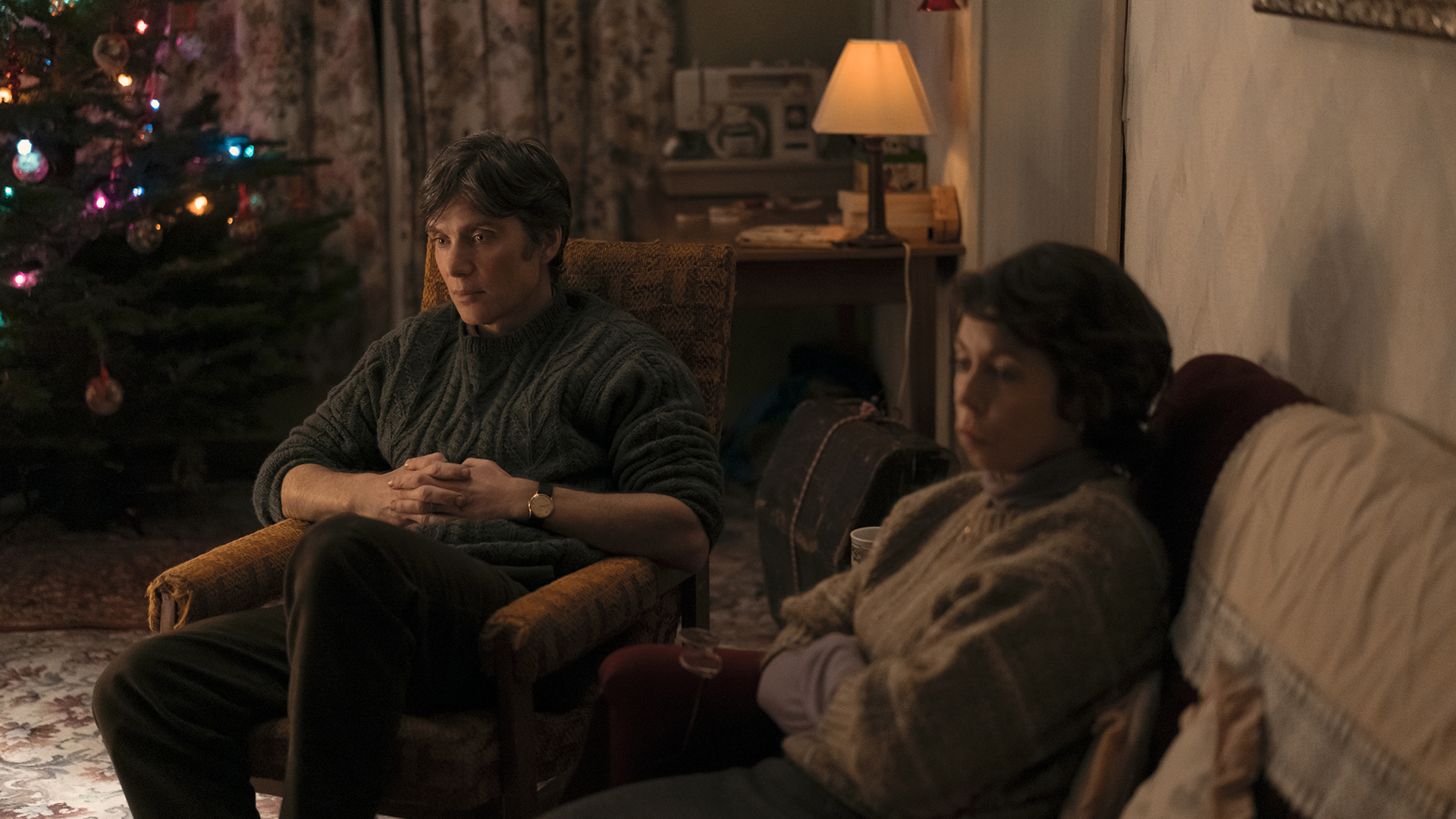
But it wasn’t until eight years after the Disco Pigs film that Enda Walsh took to the screen again with arguably his most acclaimed work to date. Walsh co-wrote the screenplay for Steve McQueen’s Caméra d’Or-winning Hunger (2008), which stars Michael Fassbender as political prisoner Bobby Sands who, along with fellow members of the Irish Republican Army, undertook hunger strikers and dirty protests at the Maze Prison in 1981.
Since its release, Hunger has been hailed for its deeply human and nuanced look at a situation that is often only discussed in black and white. In the same way as Small Things Like These, the screenplay for Hunger is economical with dialogue; Walsh (and the actors) gently guide us through the epicness of history as it affects those living it. And yet, the film’s most celebrated scene is the near 24-minute conversation between Fassbender’s Sands and Liam Cunningham’s Father Dominic Moran. Intimate and unbroken, the camera is still and at a remove from the actors, creating a theatrical quality that encourages us to lean in and listen intently.
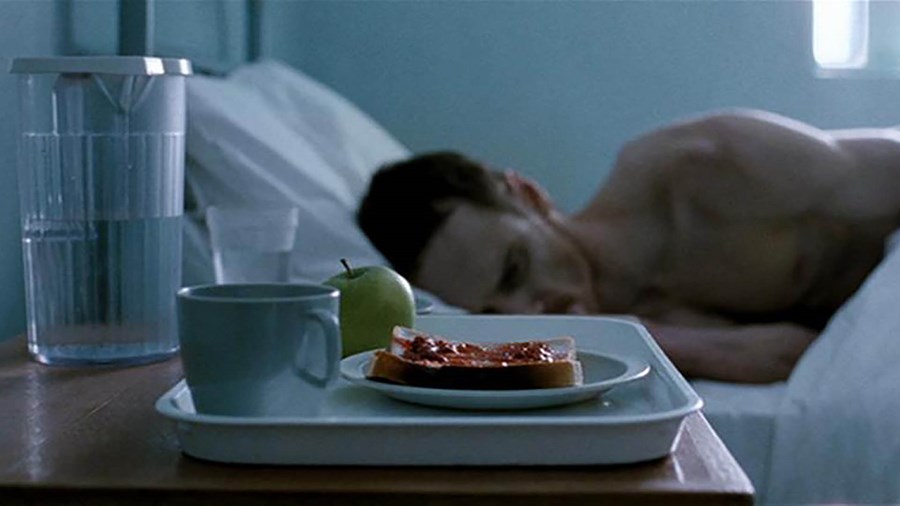
Hunger (2008)
Be they fictional or based on real people, Enda Walsh’s on-screen characters are recognisable for their watchfulness and stoicism in the face of the world’s atrocities. Walsh shows both Bill Furlong and Bobby Sands to be steadfast in their course of action against societies and histories that might happily condemn them to bystanders or victims.
Throughout Small Things Like These, Furlong takes in the treatment of the women around him: watching young women harassed in the street by drunk men and teenage boys on separate occasions, and asking his daughter instantly if the men working his coal yard ever give her any trouble. He understands that it’s men who hound these women into the laundries, and that any woman – including his five daughters – is vulnerable to the nuns.
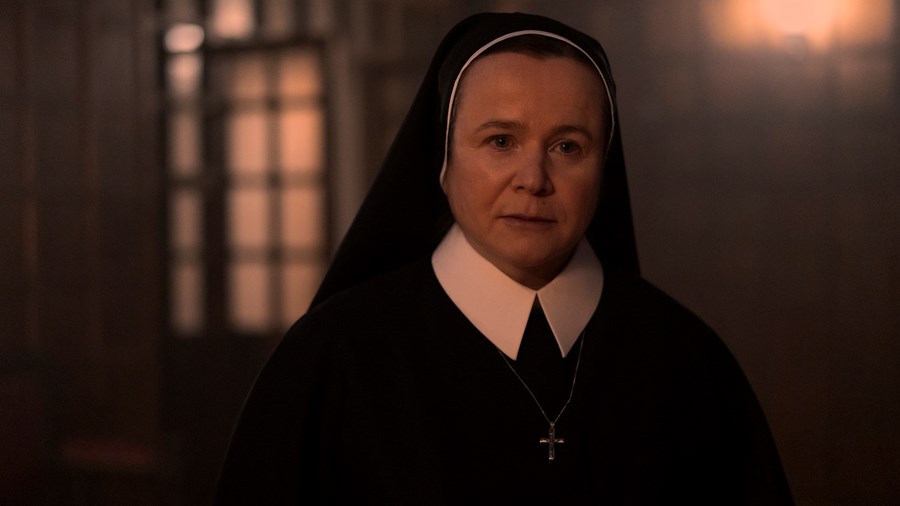
Small Things Like These (2024)
Walsh’s next cinematic endeavour is with none other than Lynne Ramsay (Ratcatcher, We Need To Talk About Kevin). Die, My Love, starring Jennifer Lawrence and Robert Pattinson, is an adaptation of Argentine writer Ariana Harwicz’s novel of the same name. The film follows a mother’s spiralling postpartum depression. Though not yet slated for release, this would mark Ramsay’s first feature since 2017’s You Were Never Really Here. Given her penchant for portraying lone wolves battling to stay afloat – and Walsh’s deft hand for writing characters in confinement, struggling existentially against social norms – this writer/director pairing is quite possibly a match made in heaven.
WATCH SMALL THINGS LIKE THESE IN CINEMAS




